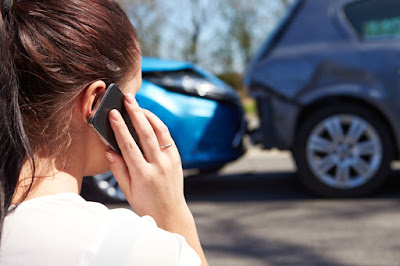Car insurance is a legal requirement in most states. Need another reason? Here are four ways car insurance coverage may help protect you...
Having car insurance is essential because it covers your expenses in the event of vehicle damage or injuries to other drivers, passengers or pedestrians. Driving without car insurance is illegal. If you don’t have it, you could be fined or disqualified from driving.
There are three levels of cover you can choose from - third party; third party, fire and theft; and comprehensive.
Your insurer may also allow you to add named drivers to your policy who can also drive your car, but it’s important to remember that the main driver must be the person who drives the car the most.
Your premium is based on a number of factors, including your age, where you live, the type of car you drive, your occupation, where your car is kept, what you use it for and whether you’ve been convicted of any motoring offences.
Why is car insurance necessary?
All motorists must be insured against their liability to other people, as stipulated in the Road Traffic Act 1988. Insurance can also provide financial support if your car is stolen, vandalised or destroyed by fire.There may be instances in which you don’t need to insure your vehicle, for example, if you have declared your vehicle off the road through a Statutory Off Road Notification (SORN) from the DVLA.
The maximum fine is unlimited, plus you'll receive six to eight penalty points on your licence.
What if I am not insured?
The Government is currently reviewing penalties for uninsured drivers who kill or are involved in accidents. The police also have the power to seize and destroy any vehicle being driven without cover.Types of car insurance
- Third party - This is the bare minimum required by law, but isn't always the cheapest. It covers injuries to other people and damage to others property.
- Third party, fire and theft - This is the same as third party but also covers the cost of repairs or a replacement vehicle if your car is stolen or damaged by fire.
- Comprehensive - This is the highest level of cover you can get. It protects against damage to your own car as well as accidents involving other people. It can also include a courtesy car and legal expenses insurance; however this may be at an additional cost.
How is the cost of car insurance worked out?
You can often lower your premium by paying a higher excess, which is the amount you have to contribute towards the cost of a claim you make. Young people in particular face high premiums because of the greater accident risk they carry, and some may be tempted to cut corners to get a cheap deal.
However, the Insurance Fraud Enforcement Department (IFED) has warned motorists to be on their guard against ‘ghost brokers’, who sell fake insurance.
They prey on those paying the highest premiums (typically young men) by offering cheap deals online, by the roadside or in restaurants. Always make sure your insurer is regulated by the Financial Conduct Authority!
Here are five reasons why you need a car insurance:
To comply with state laws
Car insurance is legally required in most states. At a minimum, drivers must purchase liability coverage with state-mandated bodily injury and property damage limits. If you cause an accident that injures someone or damages their property, liability coverage may help pay for the other person's losses.
To satisfy loan or lease requirements
If you're financing or leasing your vehicle, your lender may require you to purchase collision and comprehensive coverage. Since the lender or leasing agent is the lienholder of your vehicle while you're making payments, these two coverages may help protect their investment. Comprehensive or collision coverage may help pay to repair or replace the vehicle if it's damaged in a covered loss.
To help protect your finances
If you cause a car accident, you may be held responsible for costs associated with it. These may include legal fees, the injured person's medical expenses or their lost income compensation. Liability coverage may help pay for these costs. Without liability coverage (or adequate liability limits), you would likely have to pay these costs out of your own pocket.
To help protect your passengers
Medical payments coverage and personal injury protection may help pay for your medical bills if you're injured in an accident. And it also may help cover your passengers' expenses due to the accident. Coverage may help pay for hospital visits, doctor bills and surgery.
To help protect yourself
Even though liability coverage is a legal requirement, many people drive without it. Uninsured motorist coverage may help pay for your medical bills if you're hit by a driver without insurance. This coverage is required in some states and optional in others.
Having the proper car insurance coverage in place can go beyond fulfilling a legal requirement. A car insurance policy may help protect your vehicle, your wallet and even offer peace of mind. Talk to a local agent, who can help you choose the coverage that's right for your needs.

No comments:
Post a Comment